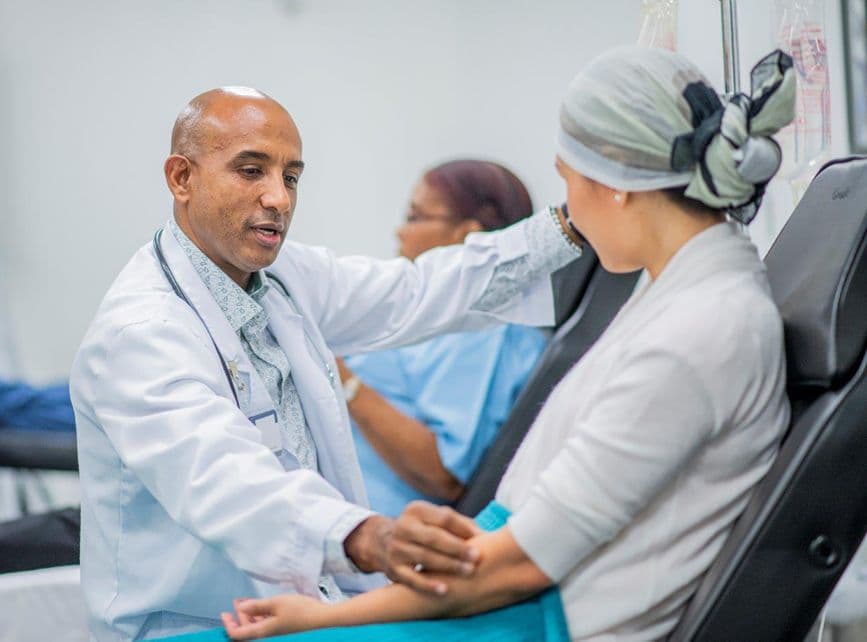How my experience as a patient helped shape NICE guidelines for colorectal cancer
Following my surgery and treatment for colorectal cancer in 2014, I wanted to contribute to research in the cancer field and hopefully improve things for patients in the future.

My previous work experience in Careers had involved sitting on several university committees which I felt would be helpful preparation for NICE committee work. I was also interested in medical science, having done a degree in Physiology many years ago, though scientific knowledge is not required by public members.
A rewarding experience
I learnt a lot about research and the strict requirements needed to provide good evidence before a new treatment or guideline could be published. It was a very thorough and detailed process, but I felt fully supported by NICE staff and other members of the committee throughout. When the final report was published, I felt very satisfied that safe recommendations had been produced which would benefit patients in future.
Using my experience to help future patients
My input throughout was to put forward points which would be important to patients in making decisions about treatment.
Contributing my personal experience to the discussion, I shared my experience of developing chronic peripheral neuropathy, which came about as a side effect following chemotherapy. Unfortunately, it didn’t respond to a number of treatments, and resulted in my feet being extremely painful 24/7 and my ability to walk any distance was severely restricted.
My experiences were supported by the research results - which led to a reduction in dosage from 6 months to 3 in the NICE guideline. This was recommended to help reduce the number of people who go on to develop this, and the statement made in section 1.2.6 about managing and monitoring symptoms and reducing dosage of chemotherapy if necessary will also help. However, this depends on patients being very honest about their symptoms, and when people are concentrating on survival, they tend not to want to reduce the dosage of a drug which might save them vs a side effect. This was certainly true for me and for many others I suspect.
The decision to do this was finally based on very good evidence, but I think this was the guideline that gave me the most personal satisfaction.
Happily for me, I did find a solution to the problem – outlined in a NICE Technology Appraisal Guideline which suggested spinal cord stimulation for chronic neuropathic pain. Two years ago, I had a spinal stimulator implanted and it has changed my life. I can now walk for an hour quite happily with feet which are a bit uncomfortable but not painful.
Becoming a co-author
I was also a member of a subgroup which produced a NICE Patient Decision Aid for Aspirin in Lynch Syndrome, where the patient representative views were very important in making this very lay friendly for patients to read. A BMJ summary for the Colorectal Cancer Guideline was published in March 2020 and I was listed as a co-author – something I had never expected to see!
So, what’s next for me?
Currently, I am sitting as a Public Representative on the Trial Management Group for POLARiS, an NIHR Project assessing different treatments for patients who have LARS (Low Anterior Rection Syndrome) following cancer surgery. This condition affects bowel control which can severely affect people’s quality of life. Interestingly, this was an aspect we looked at on the NICE Committee, but there was insufficient evidence to make any recommendations for treatment, so NICE made a recommendation for further research in this area. My experience on the NICE Committee played a significant role in helping me to get a position on the research group for this condition.
Advice for others thinking of joining as a lay member
I would say ‘go for it’ of you feel you have some relevant experience of the condition under study but do be prepared to do quite a bit of reading of documents before meetings. Don’t be put off by the idea of sitting on a committee with some very highly qualified clinicians. They are very friendly and helpful, and they really need the patient view in their discussions.
Find out more about NICE’s current committee vacancies.
